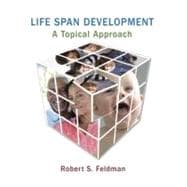
Professor Feldman, who initiated the Minority Mentoring Program at the University of Massachusetts, also has served as a Hewlett Teaching Fellow and Senior Online Teaching Fellow. He initiated distance learning courses in psychology at the University of Massachusetts
A Fellow of both the American Psychological Association and the Association for Psychological Science, Professor Feldman received a B.A. with High Honors from Wesleyan University and an M.S. and Ph.D. from the University of Wisconsin-Madison. He is a winner of a Fulbright Senior Research Scholar and Lecturer award, and he has written more than 100 books, book chapters, and scientific articles. He has edited Development of Nonverbal Behavior in Children (Springer-Verlag), Applications of Nonverbal Behavioral Theory and Research (Erlbaum), and co-edited Fundamentals of Nonverbal Behavior (Cambridge University Press). He is also author of Child Development, Understanding Psychology, and P.O.W.E.R. Learning: Strategies for Success in College and Life. His books have been translated into a number of languages, including Spanish, French, Portuguese, Dutch, Chinese, and Japanese. His research interests include honesty and deception in everyday life and the use of nonverbal behavior in impression management, and his research has been supported by grants from the National Institute of Mental Health and the National Institute on Disabilities and Rehabilitation Research.
Professor Feldman loves music, is an enthusiastic pianist, and enjoys cooking and traveling. He has three children, and he and his wife, a psychologist, live in Amherst, Massachusetts, in a home overlooking the Holyoke mountain range.
Chapter 1. An Orientation to Lifespan Development
Module 1. Determining The Nature–And Nurture–Of Lifespan Development
Module 2. Theoretical Perspectives
Module 3. Research in Lifespan Development
PART II. PHYSICAL DEVELOPMENT
Chapter 2. Genetics, Prenatal Development, and Birth
Module 4. Foundations of Genetics
Module 5. The Interaction of Heredity and Environment
Module 6. Prenatal Growth and Birth
Chapter 3. Physical Growth and Aging Across The Lifespan
Module 7. Physical Growth and Change
Module 8. Motor Development
Module 9. Perceptual Development
Chapter 4. Health and Wellness
Module 10. Stress and Coping
Module 11. Illness and Well-Being
Module 12. Promoting Health and Wellness
PART III. COGNITIVE DEVELOPMENT
Chapter 5. Cognitive Growth: Piaget And Vygotsky
Module 13. Principles of Cognitive Development
Module 14. Piaget’s Approach to Cognitive Development
Module 15. Vygotsky’s View of Cognitive Development
Chapter 6. Cognitive Growth: Information Processing Approaches
Module 16. The Basics of Information Processing
Module 17. Memory
Module 18. Applying Information Processing Approaches
Chapter 7. Language Development
Module 19. The Origins of Language
Module 20. The Course of Language Development
Module 21. Culture and Language
Chapter 8. Intelligence
Module 22. Intelligence: Determining Individual Strengths
Module 23. Controversies Involving Intelligence
Module 24. Intellectual Disabilities and the Intellectually Gifted
PART IV. SOCIAL AND EMOTIONAL DEVELOPMENT
Chapter 9. Social and Emotional Development
Module 25. Forging Early Social Relationships
Module 26. Emotional Development
Module 27. Personality
Chapter 10. Development of the Self
Module 28. The Development of the Self
Module 29. Evaluating the Self
Module 30. Picking An Occupation: Choosing Life’s Work
Chapter 11. Moral Development and Aggression
Module 31. Developing Morality
Module 32. Spirituality and Religion
Module 33. Aggression and Violence
Chapter 12. Gender and Sexuality
Module 34. Gender: Why Do Boys Wear Blue And Girls Wear Pink?
Module 35. Sexual Maturation and Sexuality
Module 36. Relationships
Chapter 13. Friends and Family
Module 37. Social Relationships Across the Lifespan
Module 38 .Lifestyles
Module 39. Family Life
Chapter 14. Schooling, Culture, and Society: Living in a Multicultural World
Module 40. Schooling and Lifetime Learning
Module 41. Leisure
Module 42. A Multicultural World
PART V. THE END OF LIFE
Chapter 15. Death and Grieving: The End of Life
Module 43. Dying and Death Across the Lifespan
Module 44. Confronting Death
Module 45. Grief and Bereavement
The New copy of this book will include any supplemental materials advertised. Please check the title of the book to determine if it should include any access cards, study guides, lab manuals, CDs, etc.
The Used, Rental and eBook copies of this book are not guaranteed to include any supplemental materials. Typically, only the book itself is included. This is true even if the title states it includes any access cards, study guides, lab manuals, CDs, etc.